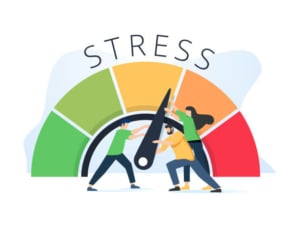After years of managing restaurants and working with the leaders of small businesses, large corporations, school systems, religious institutions, healthcare organizations, nonprofits, and more, I offer you this theory of management based on my experiences and observations:
Leaders who transfer stress onto their subordinates are ineffective, foolish, and ultimately damaging to the people and organizations they lead.
They should be ejected from their positions as quickly as possible.
Not only is the transfer of stress onto others counterproductive, harmful, and purposeless, but it will result in their direct reports transferring that same stress, plus their own, down the organizational ladder, compounding its force and damage with each transfer, resulting in the lowest members of the organization, who possess the least power to effect change, feeling the most stress.
It’s disastrous.
It also happens all of the time.
The heroes of these deeply unhealthy work environments are the leaders who refuse to transfer their stress down the organizational ladder. Instead, they serve as a barrier, preventing that compounding stress from passing beyond their position. These tend to be people who manage stress effectively, are immune to stress entirely, or possess the wisdom and ethics to understand the toxic and ineffective nature of passing their stress to those below them.
The very worst of these scenarios occur in schools, where the stress of administrators can ultimately be transferred into the laps of children who are expected to improve test scores at all costs. Not only is this unfair and damaging to children, but children who are feeling stress tend to perform poorly in testing situations, making the callousness, carelessness, and cruelty of these adults ultimately counterproductive.
Leaders will always experience pressure and stress, whether they are the CEO of a Fortune 500 company or the manager of a lemonade stand. They must manage and process their stress, preventing it from making its way down the organizational ladder.
Ideally, the stress a leader feels should not even be evident to the people in their organization.
The best leaders demonstrate confidence, competence, and optimism at all times. They can set high expectations, communicate with their people about less-than-ideal results, and take action when performance does not match expectations, but all of this must come from a position of strength and stoicism.
A visibly stressed leader is not an effective leader. A visibly stressed leader is likely passing their stress down the organizational change, even if that isn’t their intention.
Leaders must be rocks of stability in their organization. They must be the foundation upon which others can do their work.
That is a lofty and perhaps unattainable goal, given that leaders are only human, but it is also a goal that every leader should be seeking at all times.
At least according to me.







